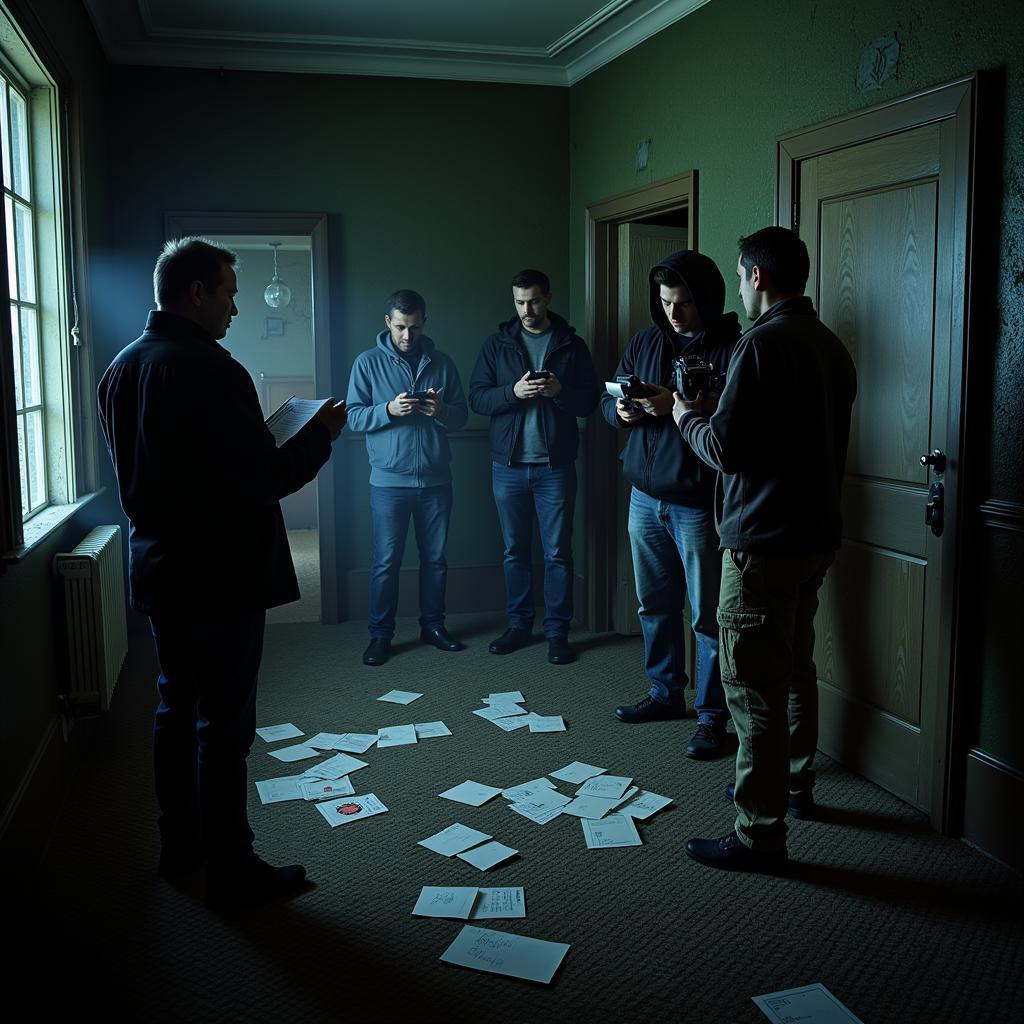Research Sops are crucial, even in the realm of paranormal investigation. They provide a structured approach, ensuring consistency and rigor in our exploration of the unexplained. Whether it’s analyzing EVP recordings or investigating haunted locations, a well-defined research SOP helps us navigate the unknown with a sense of scientific discipline.
What is a Research SOP and Why is it Important?
A research Standard Operating Procedure (research SOP) is a documented set of instructions that outlines the steps to be followed when conducting research. It ensures consistency, reduces errors, and promotes ethical practices. In paranormal research, a sop in research can be the difference between credible findings and unsubstantiated claims.
Benefits of Using a Research SOP in Paranormal Investigations
- Standardized Methodology: A research SOP establishes a clear and consistent methodology for collecting and analyzing data. This ensures that all investigations are conducted in a similar manner, allowing for comparisons and reducing bias.
- Improved Credibility: By adhering to a research SOP, paranormal researchers can demonstrate a commitment to scientific rigor, which enhances the credibility of their findings. This is especially important when presenting evidence to skeptical audiences.
- Reduced Errors: A clearly defined SOP minimizes the risk of errors during data collection and analysis. It helps researchers avoid common pitfalls and ensures that data is collected accurately and consistently.
- Ethical Considerations: Research SOPs often include guidelines for ethical conduct, such as obtaining informed consent from witnesses and respecting the privacy of individuals involved in investigations.
 Research SOP in Paranormal Investigation
Research SOP in Paranormal Investigation
Developing a Research SOP for Paranormal Investigations
Creating a comprehensive research SOP involves careful planning and consideration of various factors. Here are the key steps involved:
- Define the Scope: Clearly define the purpose and scope of the research. What specific phenomena are you investigating? What are your research questions?
- Data Collection Methods: Outline the specific methods you will use to collect data. This might include EVP recordings, EMF readings, temperature measurements, and witness interviews.
- Data Analysis Procedures: Detail the procedures for analyzing the collected data. This might involve using specialized software, statistical analysis, and qualitative analysis techniques.
- Documentation: Specify how the data will be documented and stored. This is crucial for maintaining accurate records and ensuring the integrity of the research.
- Ethical Considerations: Include guidelines for ethical conduct during the investigation. This might involve obtaining permission to investigate private property and respecting the privacy of individuals involved.
Key Components of a Paranormal Research SOP
- Pre-Investigation Planning: This includes researching the history of the location, gathering witness testimonies, and developing a specific plan for the investigation.
- On-Site Investigation Procedures: This outlines the specific procedures to be followed during the investigation, such as using calibrated equipment, conducting controlled experiments, and documenting all observations.
- Post-Investigation Analysis: This involves analyzing the collected data, interpreting the findings, and drawing conclusions based on the evidence.
- Reporting and Documentation: This includes preparing a detailed report of the investigation, including all data, analysis, and conclusions.
Dr. Evelyn Reed, a renowned parapsychologist, emphasizes the importance of SOPs: “In a field as susceptible to subjective interpretation as paranormal research, adhering to a rigorous SOP is paramount for achieving credible and verifiable results.”
Common Pitfalls to Avoid
- Lack of Consistency: Failing to follow the SOP consistently can lead to inconsistencies in data collection and analysis, undermining the validity of the research.
- Inadequate Documentation: Poor documentation can make it difficult to track the research process and interpret the findings.
- Ignoring Ethical Considerations: Failing to address ethical concerns can damage the reputation of the researchers and the field as a whole.
Conclusion
A well-defined research SOP is essential for anyone serious about conducting credible paranormal investigations. By following a structured approach, researchers can minimize errors, enhance credibility, and contribute to a better understanding of the unexplained. sophisticated modeling software is helping international researchers in many fields, including the paranormal. Remember, a solid research SOP is the cornerstone of any credible paranormal investigation. If you’re looking for more resources, check out our cornerstone research sophomore summit. Understanding the philosophy and research relationship, including pragmatism research philosophy, is also beneficial.
FAQ
- What is the purpose of a research SOP?
- How do I develop a research SOP for paranormal investigations?
- What are the key components of a paranormal research SOP?
- What are some common mistakes to avoid when using a research SOP?
- Where can I find more information about research SOPs?
- How can a research SOP enhance the credibility of paranormal research?
- What are the ethical considerations involved in Paranormal Research?
Need support? Contact us at Phone: 0904826292, Email: research@gmail.com or visit us at No. 31, Alley 142/7, P. Phú Viên, Bồ Đề, Long Biên, Hà Nội, Việt Nam. We have a 24/7 customer support team.